Many retailers don’t have the luxury of devoting all of their time and money to their new business from day one. As is the case with many entrepreneurs, they have limited time because of commitments (like full-time jobs and families) and finite financial resources to sink into a retail venture.
The solution? Many entrepreneurs start their businesses as a side project while they still hold down a full-time job. This way you can grow your business in your spare time while still paying the bills with your full-time income. Once one of your side hustle ideas starts to take off, you can take a plunge and make your passion project your full-time gig.
Yes, working one-and-a-half jobs can be a real grind at times. But as with many entrepreneurs that came before you, it is possible to start a side business from scratch and turn it into a full-time venture.
So, if you’re looking for inspiration to start up or grow your side hustle, there are plenty of examples of businesses that started out the same way. Let’s take a look at some successful businesses that grew out of side hustles to help inspire you to take your next step into retail entrepreneurship.
FURTHER READING: For more on developing your interests into a business, check out How to Find Time to Build Your Empire While Working a 9 to 5.
The Giving Manger
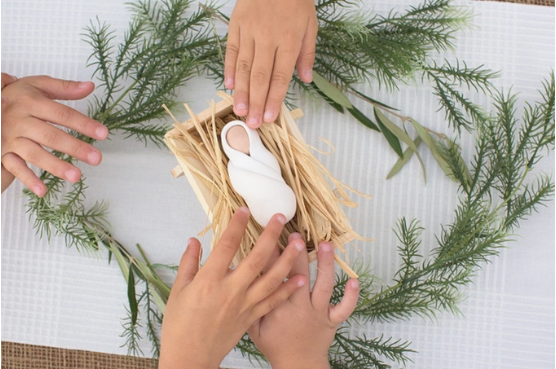 In the spirit of the holidays, The Giving Manger creates Christmas boxes that help families celebrate the birth of Jesus with a book, a wooden manger, a bundle of straw, and a small baby Jesus figure.
In the spirit of the holidays, The Giving Manger creates Christmas boxes that help families celebrate the birth of Jesus with a book, a wooden manger, a bundle of straw, and a small baby Jesus figure.
The founders of The Giving Manger started the project as a way to share their family tradition with others: “We believe in this product and the way it can help shift the focus of Christmas to serving. To us, this is more than a business. It’s a way to spread kindness and promote service.”
When the founders saw the potential of their passion project to become something bigger, they turned to Kickstarter to match their investment and start taking new orders. On Kickstarter, the pair set a funding goal and deadline. The goal was $15,000 in 30 days. After investing $15,000 of their own money, they needed $15,000 more to bring the product to life.
The Giving Manger met (and exceeded) their Kickstarter goal and have used that momentum to create a successful seasonal business. The pair takes orders through their ecommerce site and also wholesale their product to small boutiques throughout the U.S.
Pura Vida
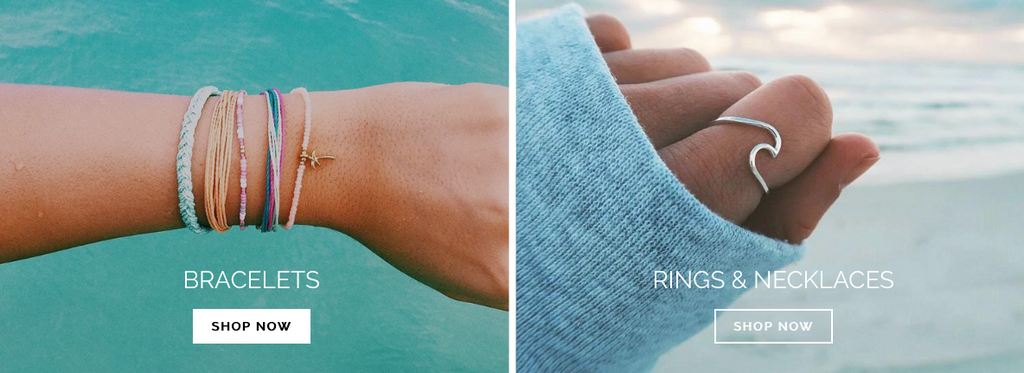 Pura Vida sells handmade jewelry from Costa Rica, creating jobs for local artisans and supporting charities in the process. Two friends, Griffin Thall and Paul Goodman, got the idea for Pura Vida on vacation when they met local artisans and fell in love with the bracelets they made.
Pura Vida sells handmade jewelry from Costa Rica, creating jobs for local artisans and supporting charities in the process. Two friends, Griffin Thall and Paul Goodman, got the idea for Pura Vida on vacation when they met local artisans and fell in love with the bracelets they made.
The backstory on the Pura Vida website describes the first transaction: “After seeing this, Griffin and Paul asked Jorge and Joaquin to make 400 bracelets to take home with them. No one would have expected for this casual encounter to grow into the successful partnership that it is today.”
When Griffin and Paul returned home, they didn’t actively pursue a new retail business at first. Instead, they dropped off the bracelets at a local boutique to sell over time from a small bowl and moved on with their daily lives. To their surprise, that first set of bracelets sold out within days.
Now Pura Vida now sells millions of bracelets word-wide and employs over 200 artisans to create the jewelry. This successful retail business also donates a portion of profits to worthwhile causes.
“Since the beginning, we have partnered with over 174 different charities around the world and have donated more than $1,440,822 to causes we believe in,” Pura Vida states when discussing the importance of charity.
Death Wish Coffee
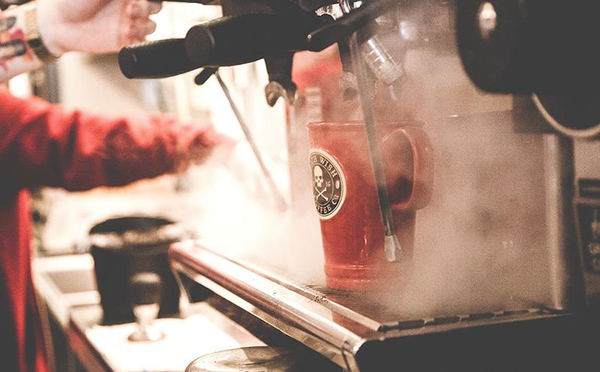 Mike Brown, owner of Death Wish Coffee, created the company’s signature product because of his desire for stronger coffee to kick-start his day.
Mike Brown, owner of Death Wish Coffee, created the company’s signature product because of his desire for stronger coffee to kick-start his day.
In an interview with Forbes for their article Meet The Entrepreneur Behind The Death Wish Coffee Super Bowl Ad, Mike talks about how his passion project business had a commercial during the Super Bowl.
“I was an accountant for the state of New York when I was in my 20s. I realized it wasn’t for me. I took a year off and hung out in coffee shops,” Mike explains, “So, I started a coffee shop in Saratoga Springs, NY, in 2008 when I was 28.”
After winning a contest to air a short commercial during the Super Bowl (and other PR opportunities), Death Wish Coffee grew from a passion for super-strong coffee to a retail business with more than 20 employees that’s doing a few million dollars in revenue each year.
In the company’s “About” section on their website, it states, “In 2015, we won Intuit’s ‘Small Business, Big Game’ competition, which gave us a 30-second commercial spot during the Super Bowl. Since then, our business has grown every day allowing us to reach more coffee drinkers than ever before.”
Card Against Humanity
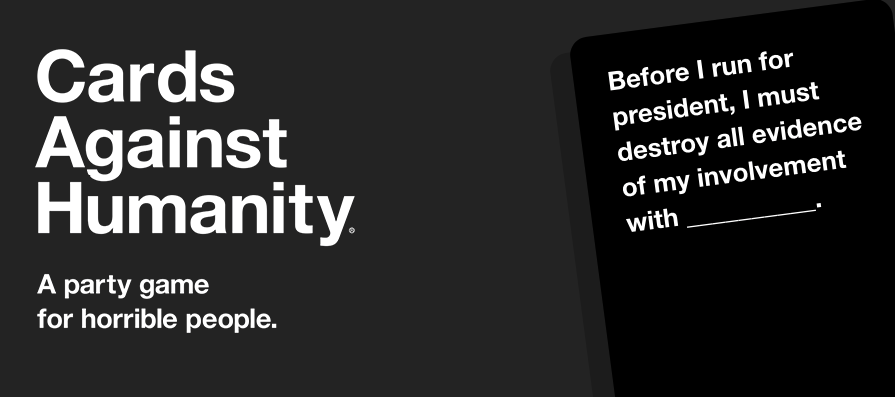 Odds are that you’ve been at a friend’s house or a party where you’ve either played or seen people playing the card game called Cards Against Humanity. The super popular, cult-classic game is now one of the most successful (and recognizable) board games in a generation.
Odds are that you’ve been at a friend’s house or a party where you’ve either played or seen people playing the card game called Cards Against Humanity. The super popular, cult-classic game is now one of the most successful (and recognizable) board games in a generation.
Now the company’s founders have a hard time keeping the product in stock. But there was once a time that this passion project was available for free to anyone who happened upon it online.
The eight founders of Card Against Humanity thought up the game in a basement in 2009, creating a card game that they could play when they met up back home during college breaks. In the Inc. article, “The Humans Behind Cards Against Humanity,” the founders discuss realizing the potential of the invention when they would bring the game back to their schools.
"We each had the experience that once someone played, they'd want their own copy. And once you started playing, an hour later there'd be 30 people in your dorm room."
From there, they created a website that offered the game for free download. Then they moved on to build a Kickstarter campaign to raise funds for the first print distribution — and now the rest is history.
Etsy
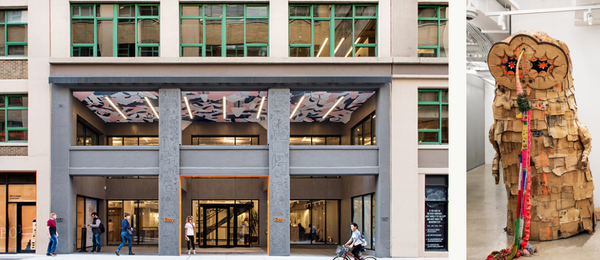 Marketplace Etsy was originally developed as a side hustle. Now the site supports the sales of countless entrepreneurs and their own side hustles.
Marketplace Etsy was originally developed as a side hustle. Now the site supports the sales of countless entrepreneurs and their own side hustles.
“Etsy was founded in June 2005 in an apartment in Brooklyn, New York to fill a need for an online community where crafters, artists, and makers could sell their handmade and vintage goods and craft supplies,” according to the website. “In the spirit of handmade, founder Rob Kalin and two friends designed the first site, wrote the code, assembled the servers and spliced the cables to get Etsy up and running.”
Now Etsy employs more than 850 people and provides a space for 1.9 million merchants to sell their merchandise — and it all grew from a passion project out of an apartment into the most well-known craft marketplace around the globe.
Growing Your Side Hustle
Feeling inspired to start a side hustle or grow your passion into something bigger and more successful?
For next steps on developing your business, check out What to Sell Online: 8 Strategies for Finding Your First Product
Tell us about your passion and how you’ve turned it into a side hustle and/or retail business in the comments.
Read more
- 5 Steps To Get Small Business Loan Quickly
- The Retailer’s Guide to POS Hardware: What you Need to Take Payments and Run Your Store
- How to Open a Retail Store in Your Starter Guide
- 5+ Ways to Build Your Side Business Without Quitting Your Day Job
- How To Work With a Developer to Build Your Retail Website
- 7 Ways to Generate Revenue Before You Open Your Retail Store
- How This Gemstone Retailer Is Making Sales Magic With Healing Crystals





